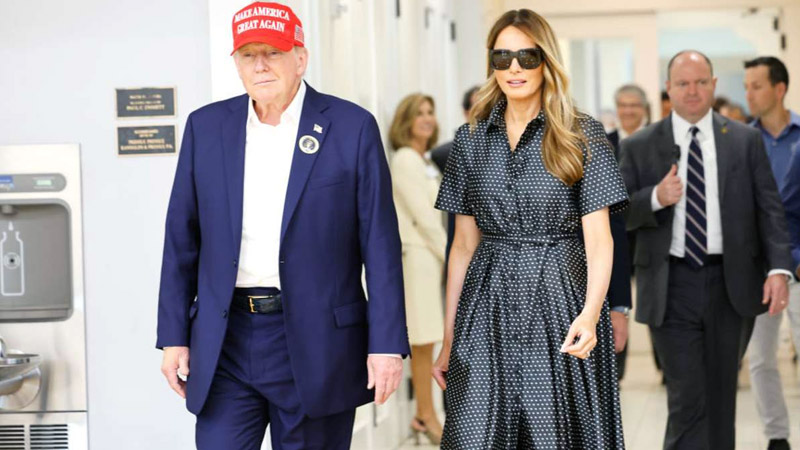“A Nice, Round Figure” Trump Proposes Further Corporate Tax Cut to 20%

Photograph: Charly Triballeau/AFP/Getty Images
Former President Donald Trump is pushing for a further reduction in the corporate tax rate, proposing a cut to 20% from the current 21%. This announcement came during a closed-door meeting with the Business Roundtable in Washington, reported by the Associated Press. Trump, who is a leading candidate for the 2024 presidential race, aims to build on the tax cuts he implemented during his term in office.
Meanwhile, at the same meeting, President Joe Biden’s Chief of Staff, Jeffrey Zients, was representing the administration while the President attended the G7 summit in Italy. Zients emphasized the Biden administration’s commitment to strengthening global alliances, which he argued benefits American businesses significantly.
The discussions at the roundtable covered a broad spectrum of issues. Trump highlighted concerns about taxes, inflation, and the need for increased oil production. On the other hand, Zients focused on the importance of the U.S. maintaining a strong global reputation and robust independent institutions like the Federal Reserve, which he noted are crucial for earning international trust and thus bolstering U.S. economic success.
Zients also credited the post-pandemic economic recovery to the Biden administration’s efforts, particularly their work with businesses to resolve supply chain issues. He warned, however, that Trump’s policies, particularly on immigration and trade, could potentially worsen inflation.
Trump’s proposal to lower the corporate tax rate to 20%, which he described as “a nice, round figure,” could save companies billions annually, according to Bloomberg. This proposal sets the stage for a significant political clash as the Business Roundtable, representing over 200 CEOs, has initiated a campaign to maintain the rate at 21%.
The backdrop of this debate is the looming expiration of parts of the 2017 tax cuts post-2025. While Trump’s campaign pushes for a reduction, Biden has proposed raising the corporate tax rate to 28% and increasing taxes on the wealthy to fund programs benefiting the middle class. The Biden administration insists that any tax cuts should be offset within the proposal, contrasting with the 2017 tax changes, which led to higher budget deficits due to unmet growth projections.
Recent studies suggest that while Trump’s earlier corporate tax cuts did spur business investment, they did not generate enough revenue to cover their cost. With the Congressional Budget Office estimating that extending the expiring tax cuts could cost $4.9 trillion over a decade and federal debt nearing $27.6 trillion, the debate over corporate taxes is more pertinent than ever. Trump’s warning that higher corporate taxes could devastate the economy underscores the high stakes involved in this ongoing fiscal policy battle.


